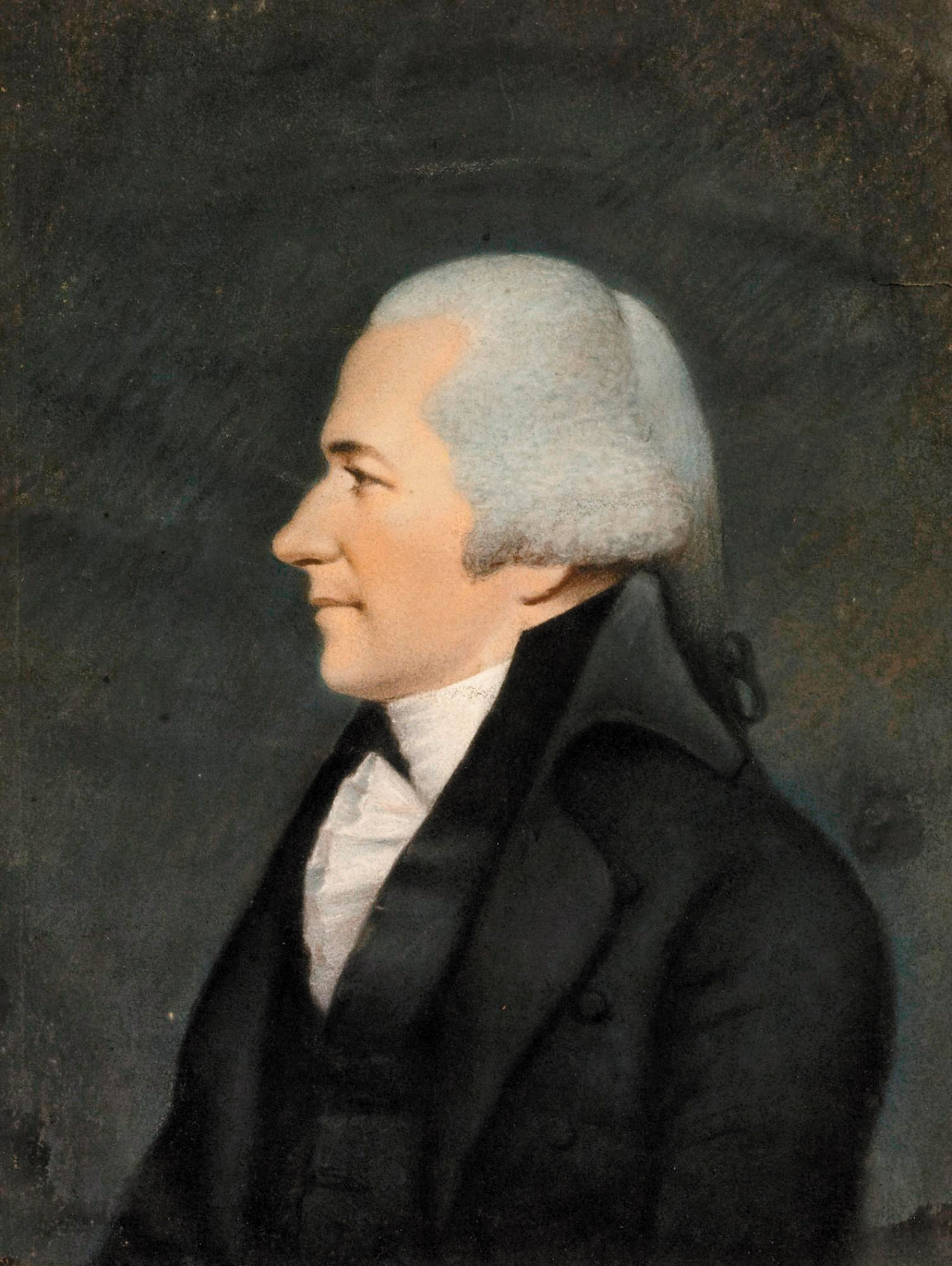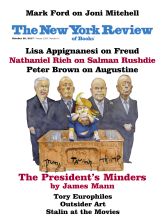In response to:
What Are Impeachable Offenses? from the September 28, 2017 issue
To the Editors:
I write to clear up misconceptions about the Constitution, the law, and my book in the review of The Case for Impeachment [NYR, September 28]. The reviewers’ most serious error, with profound implications for current debates, is their claim that impeachment is inapplicable to offenses occurring prior to the presidency. The reviewers cite no authorities for this proposition and ignore the lack of any such limitation in the Constitution. They dismiss my example of a federal judge impeached for transgressions before assuming the bench, saying, “Judges may be different from presidents, since past criminal activity could impinge on their ability to deliver justice fairly.” Yet they fail to draw the obvious connection that any collusion between Trump and the Russians would profoundly impact his ability to govern, even subjecting him to foreign blackmail.
The reviewers incorrectly claim that Trump could not be charged with treason if he colluded with the Russians, saying that treason requires “a state of war.” Yet Russia had engaged in acts of war against America, not with bullets and bombs, but through a modern form of warfare, a cyberattack on our democracy. According to Russia’s “Gerasimov Doctrine,” propounded in 2013 by Valery Gerasimov, chief of the general staff of the Russian Armed Forces, “The very ‘rules of war’ have changed. The role of nonmilitary means of achieving political and strategic goals has grown, and, in many cases, they have exceeded the power of force of weapons in their effectiveness.”
The reviewers claim that in suggesting that Trump could be charged with a “crime against humanity” for throttling back efforts to combat climate change, I advocate impeachment over a policy difference, a position I explicitly disavow, writing, “Differences of policy and values do not make a case for impeachment.” I say instead that impeachment requires proof that his backtracking on climate change threatens the well-being and survival of humanity. Crimes against the environment are well recognized in international law, and have grounded successful civil suits in several nations. A similar suit is pending in the United States. Trump himself made the case of considering inaction on climate change a crime against humanity in a 2009 open letter to President Obama, saying, “If we fail to act now [on climate change], it is scientifically irrefutable that there will be catastrophic and irreversible consequences for humanity and our planet.”
The reviewers incorrectly say that I cite Trump’s history of lying as a ground for impeachment. Rather, I claim only that Trump’s propensity to lie could expose him to impeachment if, like Bill Clinton, he lies when testifying under oath. They claim that I present Trump’s “misogyny” as another impeachable offense, although I cite his war on women only as a potential impeachment trap through a civil lawsuit that might compel him to testify under oath.
Ironically, the reviewers draw extensively on other parts of my book without attribution. They closely track my language on why impeachment need not involve an indictable crime, even requoting phrases from Alexander Hamilton presented in my book. They make a case for Trump’s violation of the Emolument Clause of the Constitution that is nearly identical to my analysis, citing many identical examples, such as his trademarks from China, his Trump Tower Manila, and foreign profits from his hotels. They ignore my chapter on abuse of power, yet make nearly the same claims for impeachment, including his attacks on the judiciary and the press, and his accusation that President Obama had wiretapped his phones.
The reviewers make another damaging mistake by claiming that even if Trump colluded with the Russians, “the issue really is the cover-up, not the crime.” This trivializes the importance of such collusion, which would constitute the most serious threat to our democracy in the history of the nation. An emphasis on the “cover-up” plays into the hands of Trump and his apologists who have been implying that collusion was not a serious matter. In response to revelations of the June 2016 meeting between leaders of his campaign and the Russians, with the intent of getting dirt on Hillary Clinton, Trump said, “Most people would have taken that meeting…it’s very standard.” If such conduct were ever to become standard, American democracy would suffer a grievous, perhaps even fatal blow.
Allan Lichtman
Distinguished Professor of History
American University
Washington, D.C.
Noah Feldman and Jacob Weisberg reply:
Contrary to Professor Lichtman’s assertion, the text of the Constitution does specify that crimes a president may have committed before taking office are not impeachable offenses—by using the word “high” to modify “crimes and misdemeanors.” High crimes, as we explained, are those that relate to the office occupied by the person being impeached. Actions taken without connection to political office, such as prior wrongdoing unconnected to the presidency, are not and cannot reasonably be construed to be “high.” Precedent overwhelmingly supports this understanding. From 1789 until 2010 not one federal official was impeached for actions taken before assuming office.
As Alan Baron, a former special counsel on impeachment, points out in another letter to the editors not published here, the 2010 impeachment of federal judge G. Thomas Porteous went against this tradition to a degree. One of the four articles of impeachment against Porteous was for “a longstanding pattern of corrupt conduct”—taking kickbacks from a bail bondsman—that had begun when he was a state court judge and continued while he served on the federal bench. The other three articles related exclusively to Porteous’s federal judicial service. To the extent that the citation of the judge’s earlier conduct could be understood as a departure from precedent, as was justified at the time by then Senator Jeff Sessions, it was in our view highly doubtful.
As we noted, the Porteous article of impeachment could arguably be justified on the theory that the constitutional status of judges differs from that of presidents. Under Article III of the Constitution, judges serve “during good behavior”—a restriction not applied to the president. It could be maintained that prior wrongful acts by judges constitute a violation of “good behavior” deserving impeachment insofar as they make it impossible for judges to be seen to be doing justice—especially when the course of conduct is ongoing, as Porteous’s was. In any event, Congress’s impeachment of him in 2010 should not be interpreted as a “seismic change” in the law of impeachment, as Baron suggests, but rather as an outlying case that does not set a clear precedent for presidential impeachment.
Whether this matters in practice will probably depend on what the Mueller investigation reports. As we argued, collusion over the election would be a borderline case, since the election relates to the presidency. However, collusion during the campaign would likely be linked to unambiguously impeachable offenses in office, such as a cover-up or rewards to co-conspirators.
Some of Lichtman’s other assertions also rest on mistakes of law. The US is not now in a legal state of war with Russia despite that country’s attempts to affect the 2016 election. The Constitution requires Congress to declare war or authorize the use of military force. Furthermore, President Trump’s announcing an intent to withdraw from or renegotiate the Paris climate accord, while in our view bad policy, does not violate international law according to any remotely plausible theory, much less constitute a crime against humanity. This sort of hyperbole tends to undercut serious discussion of impeachment.
Finally, Alexander Hamilton’s account of impeachment has been discussed by every scholar on the topic since Joseph Story in his 1833 Commentaries on the Constitution. Trump’s attacks on the judiciary and violation of the emoluments clause have been front-page topics for months, written about at length by both of us among thousands of other commentators. We respectfully submit that discussion of these topics does not require attribution to Professor Lichtman.
This Issue
October 26, 2017
Rushdie’s New York Bubble
The Adults in the Room
Dialogue With God




